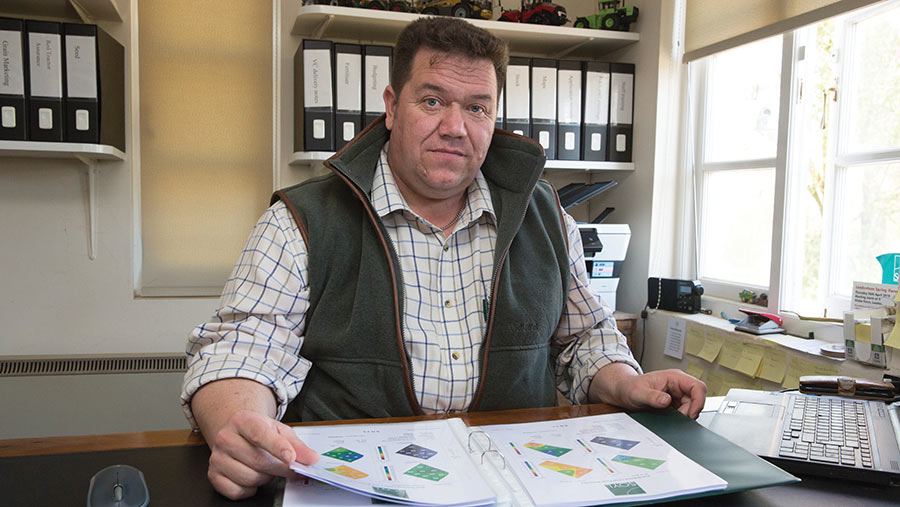Farmer Focus: De-risking strategy looks sensible after heavy rain
 Keith Challen © Tim Scrivener
Keith Challen © Tim Scrivener In autumn 2019 we didn’t drill a viable acre of winter crop due to the wet weather.
With that in mind I try not to get caught out, so we started drilling on 20 September and drilled virtually every day the weather would let us.
See also: Study suggests silicon spray reduces cereal slug damage
We weren’t able to string more than two days together without getting rained off, but we managed to get all but two fields drilled as planned.
Then, with around 120mm over a 10-day period and with one 79mm incident, all the good work done by the team was quickly undone.
Rivers burst their banks and field drains became overwhelmed and at one point we had more than 100 acres completely submerged with several hundred more with large areas of ponding.
In 2019 we did not have the expense of seed and pre-emergence chemicals, but this year we had.
So far I’ve written off several hundred acres of wheat with several hundred more likely to be patchy.
To add insult to injury we are having a major slug epidemic now. You just couldn’t write it.
So what’s the answer? The weather seems to be working in extremes.
This is causing high risk to the business, the insurance policy of the Basic Payment Scheme is diminishing fast and the capital requirement to farm is ever increasing.
Both variable and fixed costs have risen considerably faster than inflation.
I don’t know the answer, but a de-risking strategy would seem appropriate in the current climate, and for us that involves the Sustainable Farming Incentive (SFI).
We run a league table of field performance and as you’d expect there’s quite a difference.
Fields that haven’t performed well and are deemed to be high risk will go into SFI and those with a good performance will continue to be combinable cropped, but it still feels risky.
I’ve had a few enquiries into the results from our Redekop seed control unit and I have to say so far I’m very pleased.
There has been a considerable control of volunteers which I believe will also result in control of grassweeds, on which I will report at a later date.
